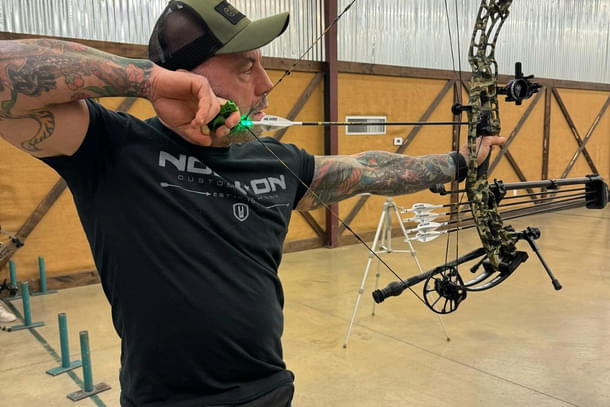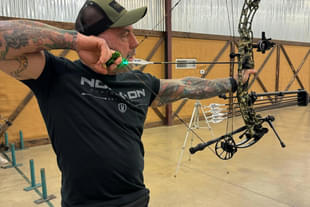Culture
Masculine Men Are Making A Comeback
Dhruv Sanyal
Oct 17, 2024, 06:32 PM | Updated 06:32 PM IST
Save & read from anywhere!
Bookmark stories for easy access on any device or the Swarajya app.


In the last few years there has been a curious phenomenon emerging from the culture wars in the West — the return of “masculine men.”
Till very recently, the culture wars in North America and Western Europe had evolved to condemn “toxic masculinity” as the result of a turn in a particular strand in the “feminist movement.” This showed through in popular culture, academic discourse, and even in public policy.
However, there now appears to be a strong response that is emerging. Most of it is still limited to podcasts, social media memes, and other fringe platforms. Although it hasn’t penetrated the mainstream discourse yet, it is no longer invisible. This article will delve into why this cultural movement emerged and how it is evolving.
Masculine men have historically been viewed as the backbone of society, often representing strength, bravery, resilience, competitiveness, and independence. Their biological role has traditionally been to protect and provide for their tribe. However, since the late twentieth century, these traditional masculine traits in men have been systematically demonised. This comes as an overcorrection by society in response to the feminist movements labelling men as “toxic” and “oppressive.”
This demonisation was aided and amplified by the softening of Western society as life gradually shifted further towards sedentary work culture, the destruction of traditional family structures, the rise of individualism, and the glorification of soft men in media — going from actors like Arnold Schwarzenegger and Sylvester Stalone in the 1980s to Timothee Chalamet and Tom Holland today.
This decrease in masculinity among American men can be seen through the massive drop in average grip strength — an indicator of a man’s overall physical health — from 121 pounds (lb) (right) and 105 lb (left) in 1985 to 101 lb (right) and 99 lb (left) in 2016. As well as an age-independent 1 per cent per year rate of decrease in male testosterone since the 1980s.
As many men were slowly losing their masculinity and bending to the new ways of society, the masculine men that remained turned into outliers, ripe to single out and corner. In recent years, the effects of this have evolved further to these masculine men being labelled as “sexist” or “misogynistic” when they express anything even mildly resembling traditional masculine traits. These labels serve as a powerful deterrent, discouraging open discussions about masculinity.
Nowadays, the open hatred towards men is completely normalised with phrases such as “men are trash” and internet debates like the “would you rather be stranded unarmed in the woods with a man or bear” going viral with a large number of women unironically claiming they would choose the bear.
The perceived value of masculinity has diminished to the point where any masculine act by a man is viewed as radical and brings a man to the point of "cancellation,” even for a mild opinion.
Despite this demonisation, in recent years, traditional masculinity has gained momentum. This movement can be seen everywhere online, with several voices such as Joe Rogan, Jordan Peterson, Andrew Tate, and several others leading the charge by opening up discussions through podcasts and talk shows.
Through his podcast, Rogan sets an example for what a masculine man can be. His podcast “The Joe Rogan Experience” is the biggest podcast of all time and is far more viewed than any other mainstream network today. He uses his platform to advocate for open discussions about masculinity and demonstrates to his viewers not only how to live a masculine lifestyle but also the benefits that come with it.
He talks about his struggles growing up and how martial arts gave him purpose. Martial arts not only gave him the ability to protect himself and his loved ones but also the ability to see improvements in himself over time. He could see firsthand that his hard work and perseverance gave him results. This experienced proof led to these traits being embedded as a core part of his personality, bleeding into other aspects of his life.
Through the brotherhood that came with martial arts, he also built a strong and diverse network. He explains that these are major factors that got him to where he is today.
To maintain a high level of performance in his various career endeavours, while being a present father, he intentionally tries to optimise his masculinity. He does so by continuing to train martial arts, eating meat that he himself has bow hunted, spending time around other masculine men, and taking ice baths regularly.
He tells his viewers that if you’re able to push yourself and do these things, when it comes to everyday life, everything is easy. For most of human history, these habits were extremely common in society, but today they seem to be an outlier.
Though what these internet figures say may stir up controversy, their message to young males — especially those who lack positive masculine role models — is straightforward. Embrace the masculine frame, improve your body and mind, take care of your loved ones (protect and provide), and be a positive role model for others.
They also point out that, sadly, it is often forgotten that the women who value their femininity also lose out in the end, as they are unable to find their balancing force — a masculine man.
As a result of this new resurgence, several massive influencers have begun taking their fitness seriously, with Jonah Hill, Jeff Bezos, and several other people of influence making large transformations, while others like Mark Zuckerburg, KSI, and Jake Paul are trying their hand at combat sports.
This resurgence can be felt among the Western youth with the repopularisation of stoicism, the virality of “Alpha Male” and “Sigma Male” edits, the growth of contact/combat sports culture, and the new advice for young men to overcome pain being simply to go to the gym.
With this resurgence, many men who had previously felt isolated and hopeless now subscribe to and participate in this movement, through which they not only find brotherhood among likeminded men but gain respect from their community and, most importantly, peace within themselves.





